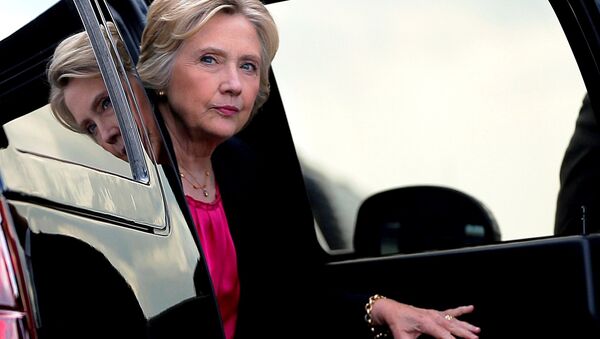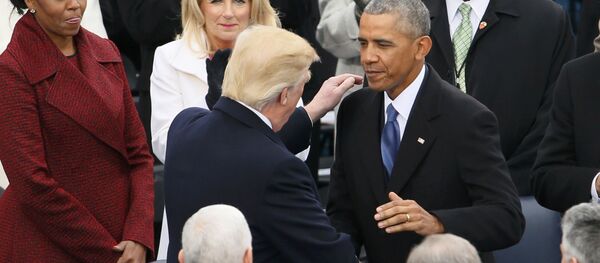The CGI, a crucial part of the Clinton Foundation, was established to "convene global leaders to create and implement innovative solutions to the world's most pressing challenges," according to the official site.
However, on January 12, 2017, the New York State Department of Labor published a WARN (The Worker Adjustment and Retraining Notification Act) notice over the CGI's main office closing.
Why did the Clintons decide to halt the initiative? Did the "pressing challenges" the Foundation used to cope with suddenly cease to exist?
Maupin believes that Hillary Clinton's defeat in the 2016 presidential election lies at the root of the CGI closing its doors.
He has called attention to the fact that after the election foreign sponsors dramatically reduced their donations.
For its part, Norway slashed its donations to the Clinton Foundation by almost 87 percent.
Citing the Norwegian newspaper Hegnar, Zero Hedge pointed out that after contributing about $15 million and $21 million in 2014 and 2015, respectively, the Norwegian government suddenly decided to cut their donations in late 2016.
It is hardly a coincidence, the media outlet highlighted: the government had boosted its donations after Hillary Clinton decided to run for President in 2016; however, after Donald Trump came out on top, Oslo has scaled their contributions back.

Speaking to Maupin, Lew Rockwell, an American libertarian author and editor, stressed that it would be naïve to think that the Foundation's numerous foreign sponsors were guided solely by philanthropic ideas when they transferred money to the Clintons.
Rockwell pointed out that the government of Australia as well as its Norwegian counterparts was seeking to strengthen its position in the international arena with the Clintons' assistance. What they were guided by was the quid pro quo ("something for something") principle, according to the libertarian author.
Maupin echoes Jim Geraghty of the National Review, a US conservative semi-monthly magazine.
"Why would foreign governments suddenly lose interest in the charitable work the Clinton Foundation purported to do?" Geraghty asked rhetorically.
"They wouldn't, unless the Clinton Foundation and the CGI had existed to give foreign governments and businessmen a way to curry favor with a future president from the beginning," the journalist stressed.
In this context it is quite logical that the Clintons decided to shut the CGI down, he argues, "Why keep operating if there's no influence left to peddle?"
Michael Sainato of the New York Observer shares a similar stance. Sainato pointed out that the Clinton Foundation's long list of wealthy donors has repeatedly provoked criticism over alleged "conflicts of interest."
"But as soon as Clinton lost the election, many of the criticisms directed toward the Clinton Foundation were reaffirmed. Foreign governments began pulling out of annual donations, signaling the organization's clout was predicated on donor access to the Clintons, rather than its philanthropic work," the journalist suggested.
To add more fuel to the fire Wikileaks' disclosures shed light on the Foundation's controversial and murky payment schemes.
Speaking to Sputnik in late November, Dr. Dady Chery, a Haitian-born journalist, revealed how the Clinton Foundation benefitted from the Haitian earthquake recovery project back in 2010, citing classified cables published by Wikileaks.
"Immediately after the earthquake, the Clintons… collected about $30 million for Haiti through the Clinton Foundation. From the foundation's taxes, we know that only about 10 percent of funds were spent on charity, so only about $3 million were spent on Haiti, and it is unclear how. There were also about $54 million from the Bush-Clinton Fund, but most of that money was spent on mortgages, microfinance, and on refurbishing and building luxury hotels," Chery told Sputnik.
In his latest op-ed Gabriel Debenedetti of Politico.com suggested that the former Democratic presidential nominee and her husband Bill Clinton are planning their comeback.
"Despite the grave disappointment, resilience is in the Clintons' DNA," Mack McLarty, Bill Clinton's first White House chief of staff, told the journalist.
"So, while I certainly don't expect to see them trying to assert their authority, I think there will be natural and welcome opportunities for them to engage… If someone they knew was running for the Senate or the Statehouse or City Hall, it would be out of character for them not to be supportive," McLarty stressed.





